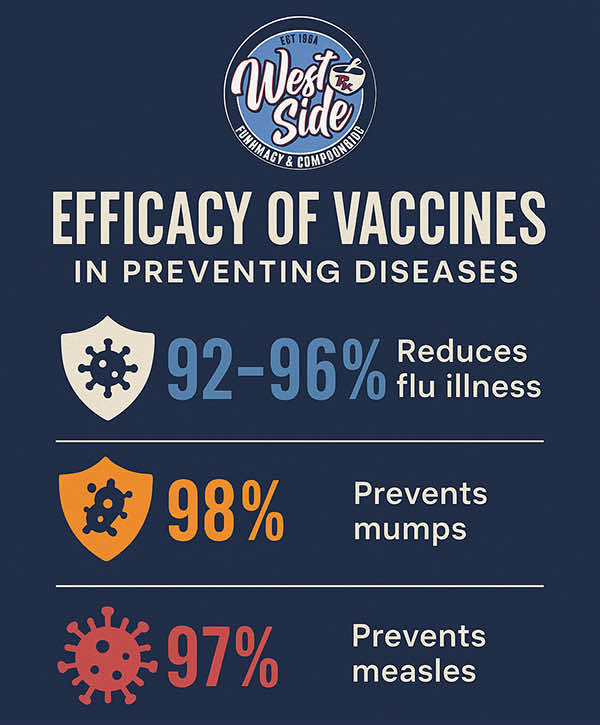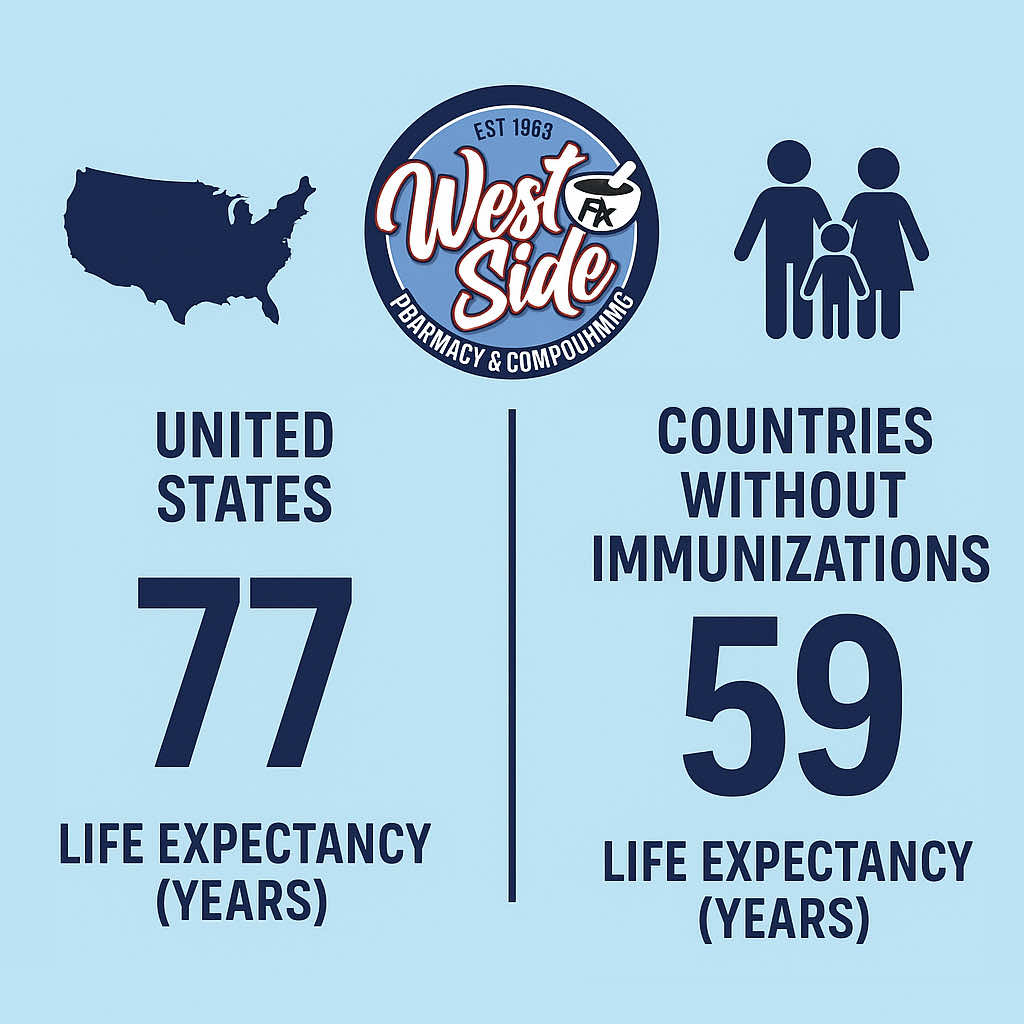Vaccine Frequently Asked Questions
Have questions about vaccines? You’re not alone—and we’re here to help. At West Side Pharmacy, we understand that making decisions about your health comes with a lot of questions, especially when it comes to immunizations. Whether you're curious about side effects, wondering what vaccines you need, or just want to better understand how vaccines work, this page is designed to give you clear, trusted answers. Your peace of mind starts with knowledge—and we’re here to provide it.
Yes! Travel vaccine consults are $75 and must be scheduled at least 3 weeks in advance of travel.
Not necessarily. Most vaccines are offered on a walk-in basis: 8:00am – 4:30pm, Monday through Friday. For travel vaccines, an appointment is required.
Please bring your driver’s license and insurance card. No paperwork necessary.
Yes. Vaccines are thoroughly tested for safety and effectiveness before they are approved. They continue to be monitored by the CDC, FDA, and other health agencies after release.
Most side effects are mild and temporary, such as soreness at the injection site, low-grade fever, or fatigue. Serious side effects are extremely rare.
Vaccines help protect you from serious diseases before you’re exposed. They also help protect those around you—especially infants, elderly people, and others with weakened immune systems.
No. Most vaccines use inactivated viruses or only a part of the virus or bacteria, so they cannot cause disease. Some vaccines may mimic mild symptoms, but they are not infectious.
You should get a flu shot every year. The virus changes from season to season, and annual vaccination is the best way to protect against the most current strains.
This depends on your destination. Common travel vaccines include Yellow Fever, Typhoid, Hepatitis A/B, and Cholera. We recommend visiting at least 4–6 weeks before travel to ensure adequate protection.
Yes. It's common and safe to receive multiple vaccines in one visit. Your pharmacist or healthcare provider can help space them appropriately if needed.
A vaccine provides initial protection. A booster is an additional dose given later to boost immunity when protection may be wearing off.
Yes. Although some diseases are rare in the U.S., they can still exist in other parts of the world. Vaccination keeps these diseases from returning and protects future generations.
Certain vaccines, like the flu and Tdap, are recommended during pregnancy to help protect both mother and baby. Always consult with your healthcare provider first.
Yes. Natural immunity may not last long or protect against new variants. Vaccination helps boost and extend your protection.
Most vaccines are safe with common medications. Be sure to let your pharmacist or provider know about any current prescriptions or health conditions before receiving a vaccine.


